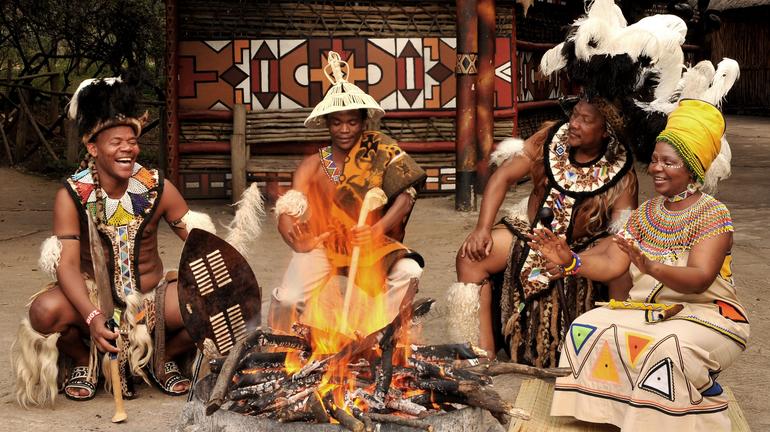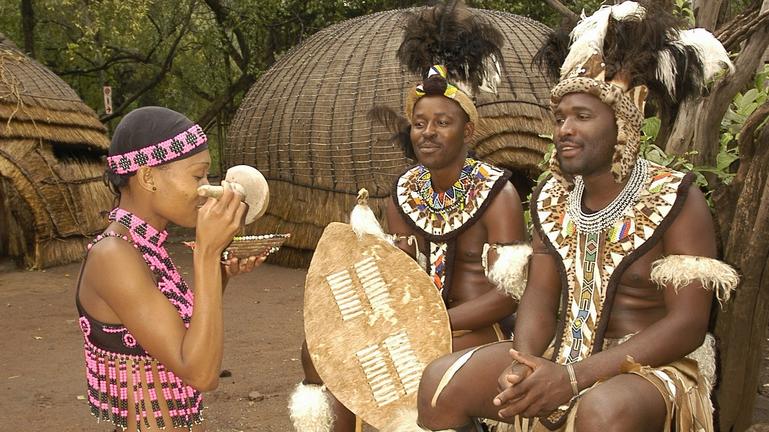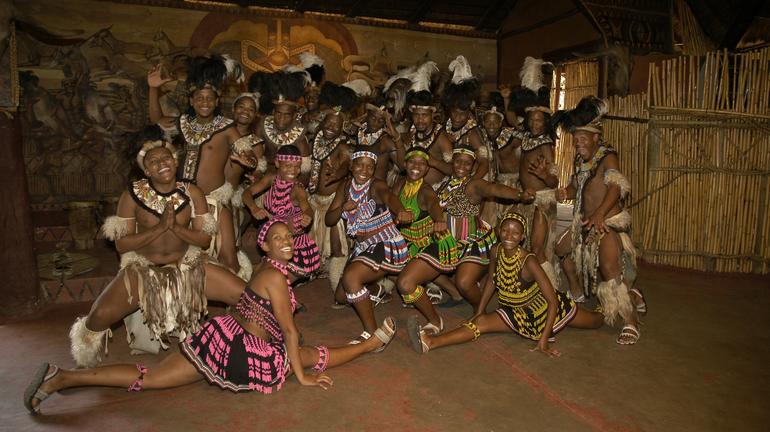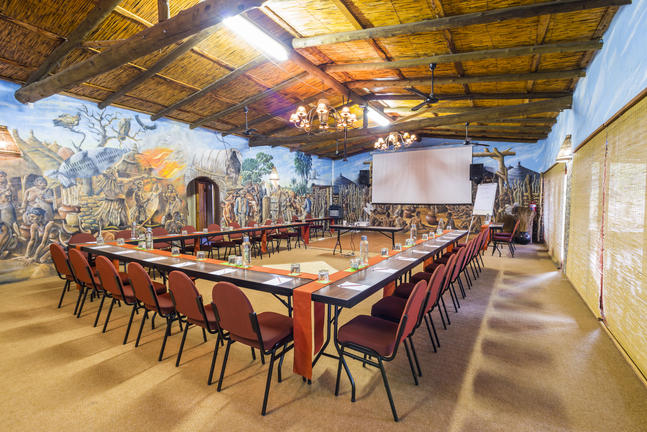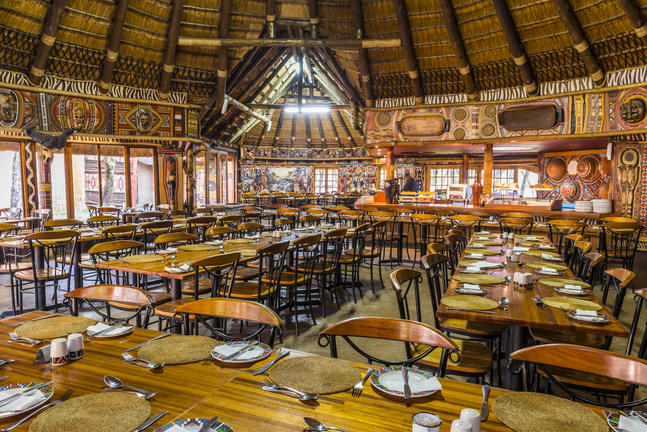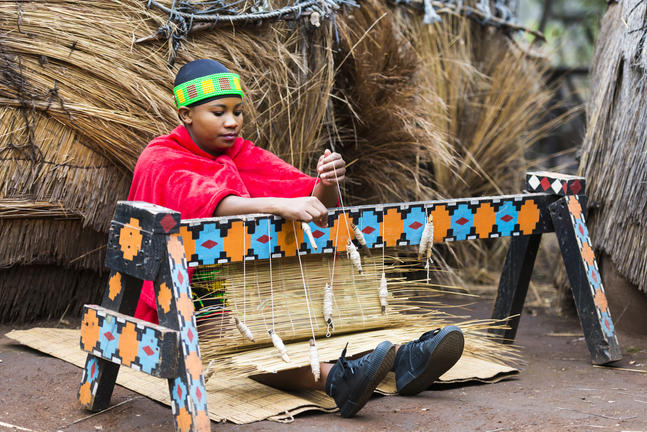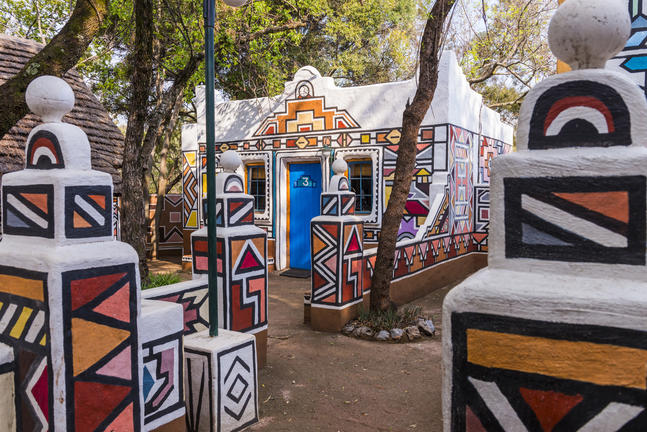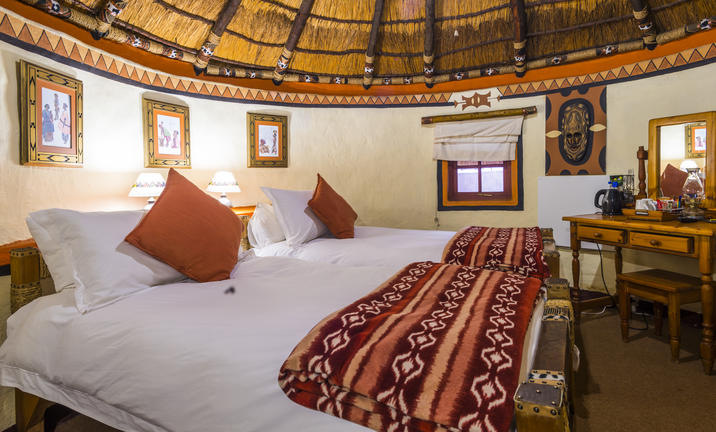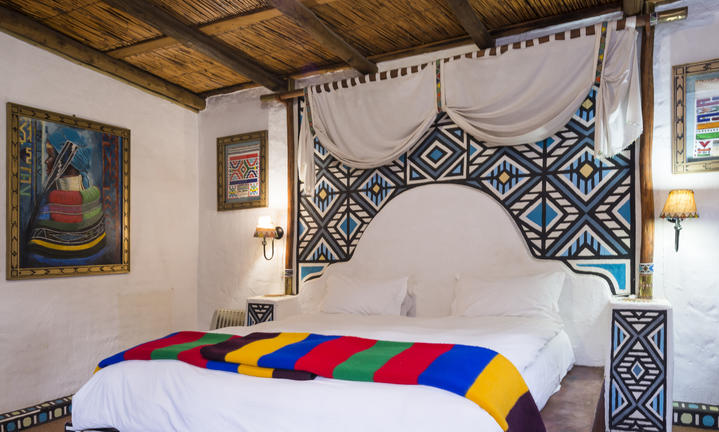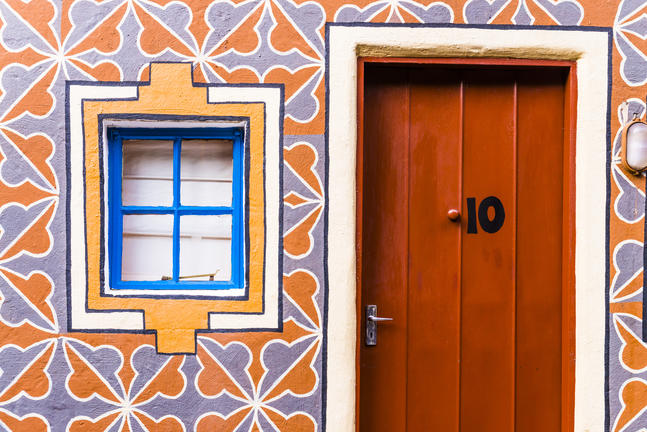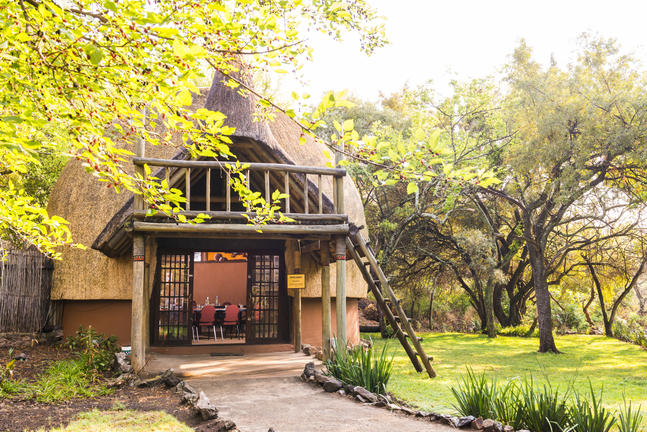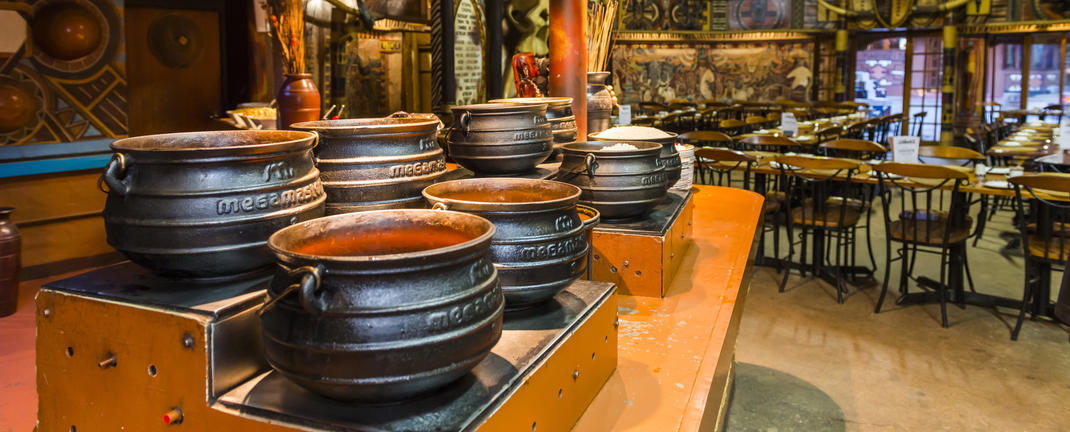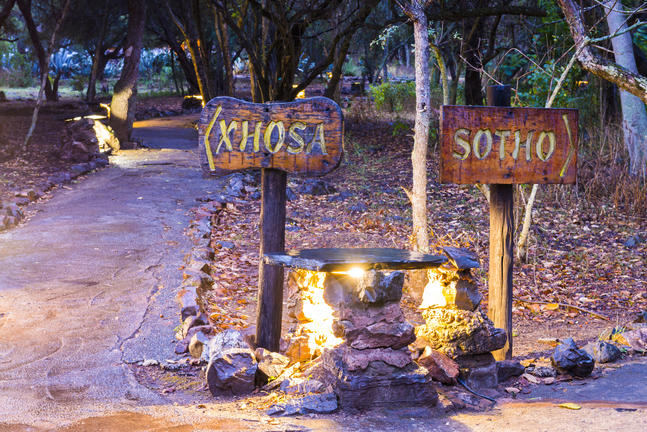“Our culture is the light of our nation. Whoever walks here amongst our cultures at Lesedit Cultural Village can also see the light.” South Africa is called the Rainbow Nation, which perfectly captures the country's cultural and ethnic diversity. There are 12 official languages and four major ethnic groups. The Nguni, which includes the Zulu, Xhosa, Ndebele and Swazi. The other three ethnic groups are the Sotho – pronounced Sutu, the Shangaan-Tsonga and the Venda. The Lesedi Cultural Village in the heart of the African bushveld within the Cradle of Humankind which is a World Heritage Site, is the perfect introduction to discover and explore the fascinating cultures and traditions of five of these tribes; the Zulu, Xhosa, Pedi, Basotho and Ndebele. Visit traditional homesteads with members of the tribes as your hosts. The song, music and warmth experienced here add a truly unique touch to your visit.
The Zulu, or People of Heaven, are the largest tribe and their language is spoken by many as both a first and second language. Dancing is a stand-out features of Zulu life. The Umhlanga or Reed Dance, at which beadwork forms most of the attire and the Indlamu. Unconnected but similar in intent to the Maori Haka, the Indlamu is performed with drums and is derived from the war dances of the warriors. Full regimental attire, precise timing and uncompromised posture are required. Men of all ages take part. This ceremony may also include the art of stick fighting - a celebration of manhood for Zulu men.
The Xhosa people refer to themselves as the amaXhosa. The tribe of 8 million people speak the second-most-spoken home language, isiXhosa.
The Pedi are a Bantu(Sotho)-speaking people inhabiting the Limpopo province in South Africa. The basic Pedi social and living unit is the kgoro, which is a semi-circular residential cluster of dwellings sheltering an extended family established around related males but may also include others.
The one tribe which can trace its rich culture and origins back to the pre-historic era, the Basotho, also speak Sotho. The royal family of Lesotho are from the Basotho clan, Bakuena. The Basotho dress is markedly different to most other tribes, especially the conical hat, the moseha whose shape represents Lesotho’s Qiloane Mountain. Basotho history is passed down through war songs, praise songs, poems, storytelling, and odes.
The Ndebele are, like the Xhosa, an Nguni tribe. Ndebele art has always been an important identifying characteristic of the Ndebele and their homes are painted in vibrant colours and geometric shapes.
Food is integral to any culture and a part of the experience of Lesedi. The vibrant decor of the large restaurant which supplies an exotic buffet is divided into three venues, East Africa, South Africa, North Africa – The Nile Room (where guests sit cross-legged on floor cushions at low tables). Here, you can delight in the variety of colours, sights, smells, tastes and sounds of the various African customs.

